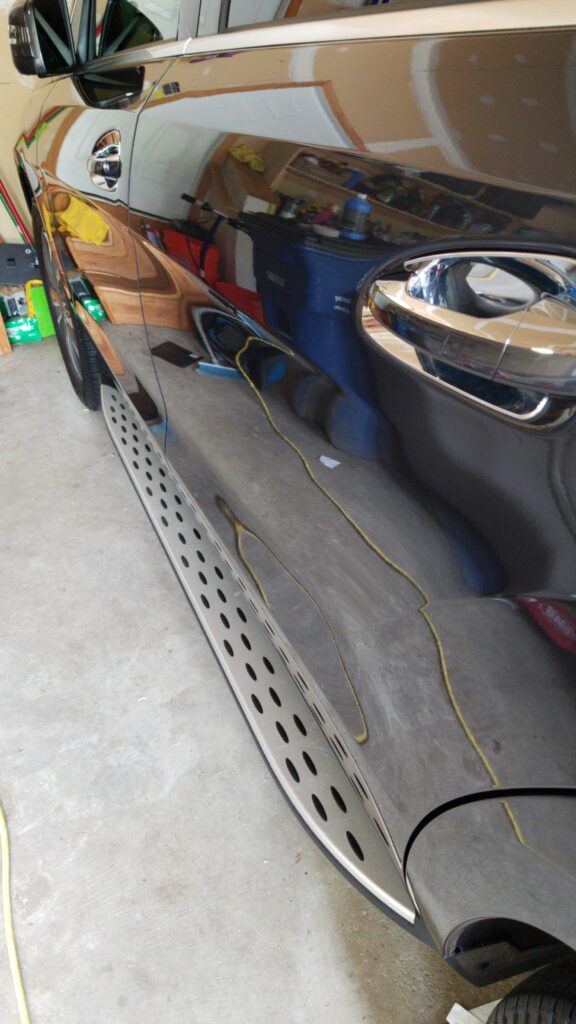

Introduction
Congratulations! You’ve made the wise choice of getting your car ceramic-coated. Not only does this protect your vehicle’s paint, but it also gives it that sleek, showroom finish we all love. But here’s the thing: ceramic coating isn’t a one-and-done solution. To keep it looking flawless, a little maintenance is essential. Don’t worry—it’s easier than you think!
Understanding Ceramic Coating Maintenance
Why Maintenance Is Essential After Ceramic Coating
Ceramic coatings form a protective barrier, but they’re not indestructible. Over time, dirt, grime, and contaminants can accumulate, dulling that glossy finish. Proper maintenance ensures your car stays looking pristine while extending the life of the coating.
Common Myths About Ceramic Coating and Its Durability
Some people think ceramic coatings make their car completely maintenance-free. Others believe the coating lasts forever. Both are myths! While ceramic coating offers excellent protection, it still requires regular care to perform at its best.
Basic Steps to Maintain Your Ceramic Coating


The Importance of Gentle Car Washing
Washing your car the right way prevents scratches and preserves the coating’s hydrophobic properties. A simple yet consistent washing routine is key.
Tools and Products You Need
- Microfiber Towels: Avoid scratches and swirl marks with these soft, non-abrasive towels.
- pH-Neutral Shampoos: Harsh soaps can strip the coating, so stick to gentle, pH-neutral options.
- Grit Guards: Keep dirt and debris at the bottom of your bucket to avoid reintroducing them onto your car’s surface.
Car Washing Techniques for Ceramic Coated Cars


How Often Should You Wash Your Car?
Aim to wash your ceramic-coated car every one to two weeks, depending on how dirty it gets. This prevents contaminants from bonding to the surface.
The Two-Bucket Washing Method
One bucket for soapy water, the other for rinsing your wash mitt—this simple method minimizes the risk of scratching your car.
Avoiding Automatic Car Washes
Automatic car washes can be harsh on ceramic coatings, often using abrasive brushes and strong chemicals. Stick to hand washing instead.
Drying Your Car the Right Way


Why Air Drying Is Not Recommended
Letting your car air dry can leave water spots, which ruin the coating’s finish.
Best Drying Techniques
Use a clean, dry microfiber towel or a specialized car dryer to gently remove water without causing damage.
Using Maintenance Sprays


Benefits of Ceramic Coating Boosters
These sprays enhance the hydrophobic properties of your ceramic coating, ensuring water and dirt bead off effortlessly.
How Often to Apply a Maintenance Spray
Apply a booster spray every 1–2 months, or as recommended by your coating manufacturer.
Dealing with Contaminants
How to Handle Bird Droppings, Bug Splatter, and Tree Sap
These contaminants are acidic and can eat through the coating if left untreated. Always clean them off as soon as possible.
The Importance of Quick Action
A quick wipe with a damp microfiber cloth can save you from permanent damage.
Avoiding Harsh Chemicals
Cleaning Products to Avoid
Steer clear of acidic cleaners, degreasers, and abrasive polishes—they can strip your ceramic coating.
Why Wax and Polish Are Unnecessary
Ceramic coatings already provide a protective layer and a glossy finish. Adding wax or polish can actually reduce their effectiveness.
Inspecting Your Ceramic Coating Regularly
Signs That Your Coating Needs Attention
If water no longer beads up or the surface feels rough, it’s time to refresh your coating or apply a maintenance spray.
When to Consider Professional Touch-Ups
For deep scratches or worn-out coatings, a professional detailer can restore your car’s protection.
Seasonal Maintenance Tips
Winter Care for Ceramic-Coated Cars
Salt and snow can wreak havoc on your car’s finish. Frequent washes and a ceramic coating booster will keep your car protected.
Preparing for Summer Weather
UV rays and bugs can degrade your coating. Regular maintenance ensures your car stays protected year-round.
Dos and Don’ts of Ceramic Coating Maintenance
Key Practices to Follow
- Wash your car regularly.
- Use gentle, pH-neutral products.
- Dry your car thoroughly after washing.
Common Mistakes to Avoid
- Using abrasive towels or sponges.
- Neglecting to remove contaminants quickly.
- Relying on automatic car washes.
Benefits of Proper Maintenance
How Maintenance Extends the Life of the Ceramic Coating
By following these steps, you’ll ensure your coating lasts for years, saving you money on reapplications.
The Enhanced Appearance of Your Car
Nothing beats the satisfaction of a car that looks like it just rolled off the showroom floor.
When to Seek Professional Help
Signs Your Coating Needs Reapplication
If the hydrophobic effect is gone and contaminants stick easily, it’s time for a touch-up.
Choosing the Right Professional Detailer
Look for experienced professionals who specialize in ceramic coatings for the best results.
Ceramic Coating vs. Traditional Wax
How Ceramic Coating Outperforms Wax
Unlike wax, ceramic coatings are more durable, longer-lasting, and provide better protection.
Why Maintenance Differs Between the Two
While wax requires frequent reapplications, ceramic coatings only need occasional touch-ups and regular cleaning.
Final Thoughts
Keeping your ceramic-coated car in top condition doesn’t have to be a chore. With the right tools, techniques, and a little consistency, you can enjoy that glossy, head-turning finish for years to come. So go ahead—treat your car like the masterpiece it is!
FAQs
- Can I use a pressure washer on a ceramic-coated car?
Yes, but use a wide-angle nozzle and keep a safe distance to avoid damaging the coating. - How do I know when my ceramic coating needs reapplication?
If water stops beading and the surface feels rough, it’s time for a refresh. - Are ceramic coating maintenance sprays worth it?
Absolutely! They enhance the coating’s properties and prolong its life. - Can I park my ceramic-coated car outside?
Yes, but prolonged exposure to UV rays and harsh weather can degrade the coating over time. - Is DIY ceramic coating maintenance enough?
For most people, yes. However, professional help might be needed for more severe issues.
